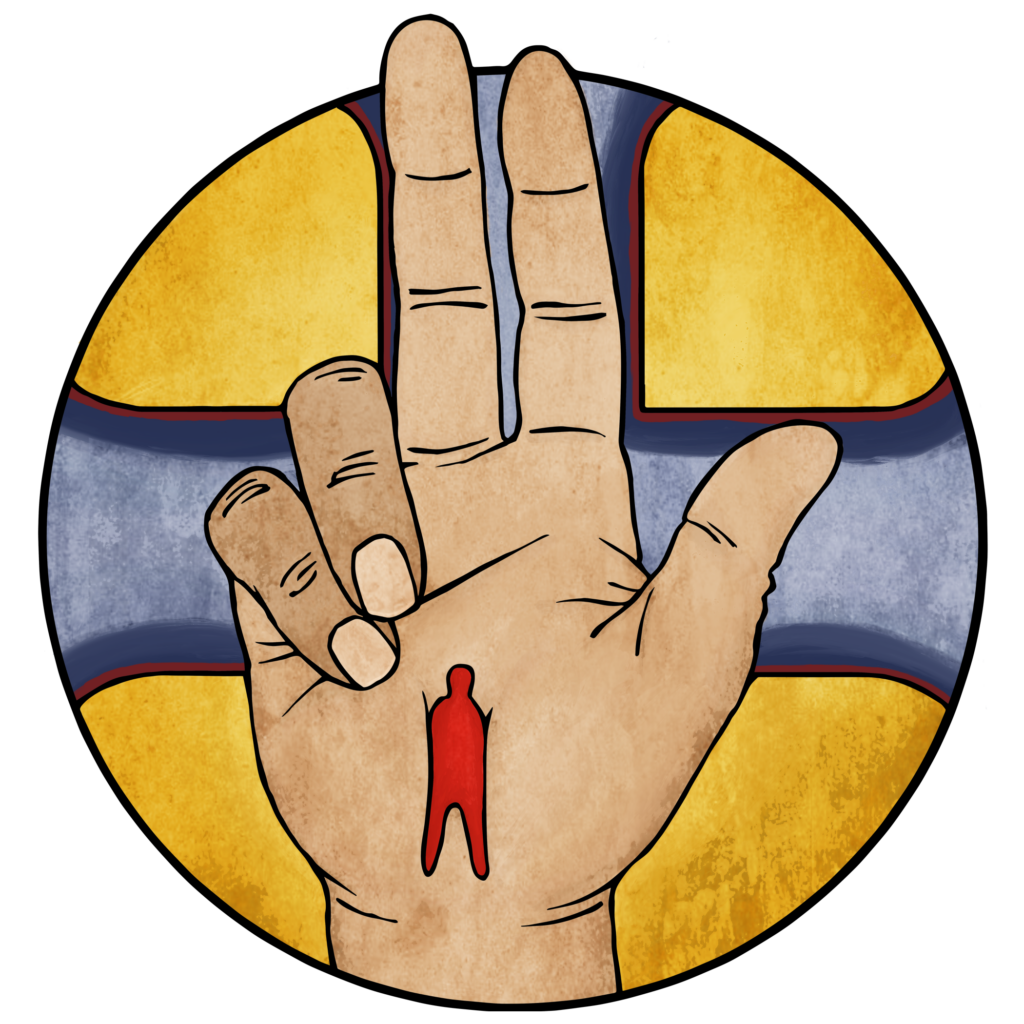February 15, 2024
Today’s Reading: Luther’s Small Catechism, 8th Commandment
Daily Lectionary: Job 11:1-20; John 5:19-29
You shall not give false testimony against your neighbor.
What does this mean?
We should fear and love God so that we do not tell lies about our neighbor, betray him, slander him, or hurt his reputation, but defend him, speak well of him, and explain everything in the kindest way.
In the Name + of Jesus. Amen. There is much negative to say. That’s hardly a secret. All the deceit, the lies, the shameful behavior, the hidden acts, not to mention, everyone around me, including my closest friends, including myself, are in sinful flesh, which means, we’re sinning—there’s much negative to say. So speak the accusation! That’ll help straighten matters out.
Scripture names the one who is to be known for laying the accusation: Satan. The word “satan” is the Hebrew word for “the accuser.” So anytime Satan or his demons are around (and when are they not in this sinful world?), we can expect the accusation. Satan accuses Job, who belonged to the Lord of being unrighteous (see Job 1:8-10). Satan laid the accusation against Joshua (Zechariah 3:1). Is it any secret why Judas Iscariot committed suicide? With Satan “in his heart” (John 13:3), what would we expect? Satan will lay the accusation (and Judas was, indeed, guilty), but Satan will not deliver the Gospel.
When we hear the accusation (as we should, after all, hear the accusing Law), but we do not hear the Gospel of all sins forgiven, Satan has us just where he wants us.
To speak the Law for the sake of the Law, and not for the sake of the Gospel—that is, to speak the accusation but to withhold the Gospel—is to fail to give the full testimony. The Gospel is the full testimony. The blood of Jesus atoned for the sins of Job (despite what Satan would have Job believe); the blood atoned for Joshua’s sin, and for Judas’s sin. And for your sin.
We are people of the Gospel. The Commandment tells us to not give false testimony against our neighbor. The Catechism further expounds that we are given to, “defend [our neighbor], speak well of him, and explain everything in the kindest way.” We are able to do this because the one thing we know for certain about our neighbor’s sin is that Jesus took that sin upon himself and bore it to the cross.
When we look at our neighbor, we may see him for his sin, his failures, his shame. Or we may see him as one redeemed by the blood of Christ Jesus. In the Name + of Jesus. Amen.
Lord, You bid us bend our human pride Nor count ourselves above
The lowest place, the meanest task That waits the gift of love.
Lord, help us walk Your servant way Wherever love may lead
And, bending low, forgetting self, Each serve the other’s need. Amen. (LSB 857: 3,4)
-Pastor Warren Graff is retired from Grace Lutheran Church, Albuquerque.
Audio Reflections Speaker: Pastor Jonathan Lackey is the pastor at Grace Lutheran Church, Vine Grove, Ky.
The Lutheran Reader’s Bible helps you develop a habit of devotion and Bible reading so you can slowly but intentionally understand and grow in God’s Word. Through introductions to the sixty-six books of the Bible, guided reading plans, and more, this Bible builds your confidence to study Scripture on your own.

